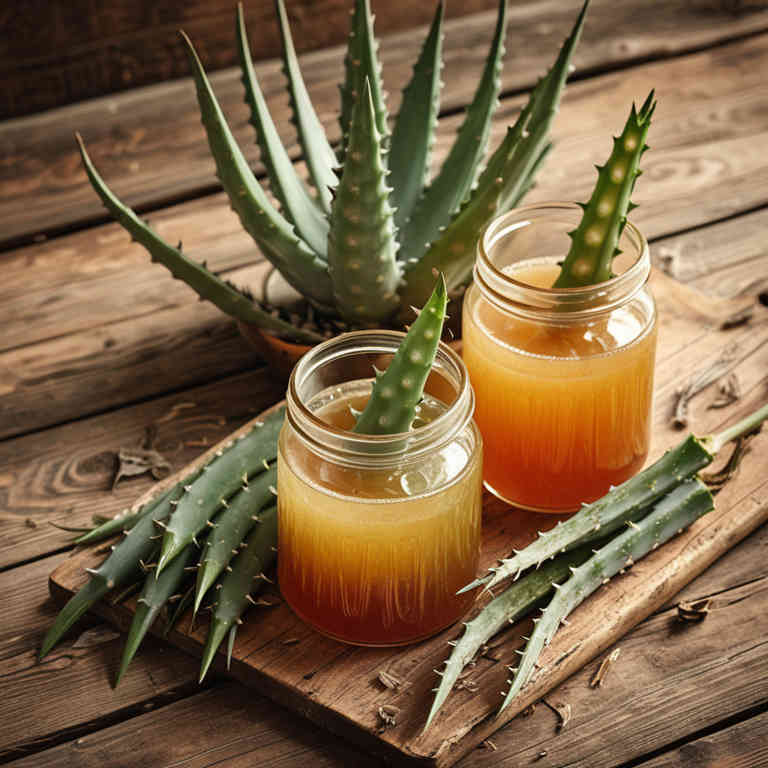Aloe vera juice for medicinal use

Aloe vera juice is a liquid extracted from the gel-like pulp of the Aloe vera plant.
It is commonly used in herbalism for its soothing and healing properties. The juice is known to support digestive health and promote skin healing due to its anti-inflammatory and antioxidant compounds. It is often consumed internally to aid in detoxification and alleviate constipation.
In traditional medicine, it is also applied topically to treat burns, wounds, and skin irritations.
Uses
Aloe vera juice has been used to treat a variety of ailments for thousands of years, with its origins tracing back to ancient Egypt, where it was revered as the "plant of immortality.".
Traditionally, it was used to soothe skin irritations, heal wounds, and even as a remedy for digestive issues. In modern times, aloe vera juice is widely consumed for its potential to support digestive health, reduce inflammation, and boost the immune system. It is also commonly applied topically to treat burns, acne, and other skin conditions.
Today, it remains a popular natural remedy, with ongoing research exploring its broader health benefits.
Benefits
Aloe vera juice has health benefits such as promoting digestive health, reducing inflammation, and supporting skin healing.
It contains enzymes that help break down food and can alleviate symptoms of indigestion and constipation. The juice is also rich in antioxidants, which may help protect cells from damage and boost the immune system. Some studies suggest it may have a positive effect on skin conditions like acne and eczema.
However, it is important to consume it in moderation and consult a healthcare professional before using it for medicinal purposes.
Constituents
Aloe vera juice active constituents include polysaccharides, enzymes, vitamins, minerals, and amino acids.
These components contribute to its reputation for promoting skin health and aiding digestion. Polysaccharides, such as acemannan, are known for their immune-boosting and anti-inflammatory properties. Enzymes like bromelain support digestion and reduce inflammation.
Additionally, the presence of vitamins A, C, and E, along with minerals like zinc and magnesium, enhances its antioxidant and healing effects.
Preparation
To make Aloe vera juice, first select a mature Aloe vera plant and carefully cut a leaf from the base.
Next, wash the leaf thoroughly to remove any dirt or residue, then slice off the spiky edges to avoid injury. Afterward, use a sharp knife to peel the outer green layer, revealing the gel inside. Place the gel in a blender and add a small amount of water or juice to help with blending.
Finally, blend until smooth, strain the mixture through a fine mesh strainer, and store the juice in a sealed container in the refrigerator.
Side Effects
Aloe vera juice may lead to gastrointestinal discomfort, including nausea, vomiting, and diarrhea, especially when consumed in large quantities.
It can also cause electrolyte imbalances due to its laxative properties, which may lead to dehydration. Long-term use might result in kidney damage, particularly in individuals with pre-existing renal conditions. Some people may experience allergic reactions, such as rash or itching, upon ingestion.
It is important to consult a healthcare professional before using aloe vera juice, especially for prolonged periods or in combination with other medications.